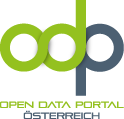News
Workshop: Open Science – What’s in it for me?
We would like to invite you to a special workshop: Bianca Kramer and Jeroen Bosman from Utrecht University will take you on a path to explore a variety of Open Science tools and practices along different phases of the scientific workflow.
This workshop is about Open Science and you:
what’s in it for you?
Open Science is disrupting traditional scientific workflows. This is changing how scientists collect their data, present and share their research, publish their findings, reach out to other communities and the public and assess the impact of their work. Many things have been written about Open Science on a policy level, but this workshop it not about policies. This workshop is about Open Science and you: what’s in it for you?
What?
Public Workshop
When?
Wednesday 20th September, 09:00 to 17:00
Where?
Lesesaal der Österreichischen Zentralbibliothek für Physik, University of Vienna, Boltzmanngasse 5, 5th Floor, 1090 Vienna
Who?
Researchers from all disciplines, research support managers and administrators
Registration
Please register via this form
Aim
The aim of the workshop is to provide researchers and administrators with hands-on examples of Open Science tools and workflow examples across various disciplines. We do not aim to discuss Open Science on a policy level, but rather want to help you discover what’s out there and how researchers can implement Open Science into their daily scientific routines. Together with the audience, we will explore open practices with respect to differences between scientific disciplines and show the added value that open approaches can generate for the researchers themselves.
Structure
Bianca Kramer and Jeroen Bosman from Utrecht University will take you on a path to explore a variety of Open Science tools and practices along different phases of the scientific workflow:
- Phase #1: Preparation, Discovery and Analysis
- Phase #2: Writing and Publishing
- Phase #3: Outreach and Assessment
Each individual phase will be introduced, discussed and exemplified by practical use cases. This will serve to see where you could apply Open Science tools and practices in your daily scientific routines, creating your own Open Science workflow.

101 Innovations in Scholarly Communication. CC BY. Source: https://innoscholcomm.silk.co/
Following this, we will discuss differences and similarities in such workflows for different disciplines and career stages, and the barriers and motivations that come into play.
Finally, Peter Kraker from the Open Access Network Austria and Jeroen and Bianca who are involved with Force11 will introduce the Vienna Principles and the Principles of the Scholarly Commons. With the audience, we’ll discuss if and how these declarations can help adoption of Open Science practices.
Schedule
09:00 – 09:15 Welcome
09:15 – 09:45 Introduction to Open Science (Bianca Kramer and Jeroen Bosman)
09:45 – 10:45 Phase #1: Preparation, Discovery and Analysis
10:45 – 11:00 Break
11:00 – 12:00 Phase #2: Writing and Publishing
12:00 – 13:00 Lunch
13:00 – 14:00 Phase #3: Outreach and Assessment
14:00 – 14:15 Break
14:15 – 15:15 How will you do your research tomorrow?
15:15 – 16:15 Vienna Principles & Scholarly Commons
16:15 – 17:00 Networking (+ drinks)
Don’t miss out on this one and register here!
This workshop is organized by the Vienna Principles Working Group of the Open Access Network Austria, AT2OA , Ludwig-Boltzmann Gesellschaft and Open Knowledge Austria.

Newsletter
Newsletter abonnieren: Wenn Sie per Email über neue Beiträge oder Applikationen informiert werden möchten, geben Sie dies bitte mit folgendem Formular bekannt. Ihre Email‑Adresse wird nicht an Dritte weitergegeben.
Teilen
2 Klicks für mehr Datenschutz: ein wesentliches Open Data-Prinzip besagt, dass keine Daten veröffentlicht werden dürfen, die einen Rückschluß auf einzelne natürliche Personen zulassen. Ein ähnliches Prinzip zum Schutz persönlicher Daten wird auf data.gv.at bei Teilen-Buttons für Social-Media-Netzwerke verfolgt: da diese Teilen-Buttons allein beim Laden bereits Daten übermitteln, bieten wir Ihnen die Möglichkeit der Selbstbestimmung - Sie können selbst entscheiden, ob ein Teilen-Button aktiviert werden soll oder nicht.




